Law no. 10/2000
(Unofficial translation, for reference only)
Commission against Corruption of the Macao Special Administrative Region
The Legislative Assembly enacts the present law, in accordance with 1) of Article 71 of the Basic Law of the Macao Special Administrative Region:
CHAPTER I
Nature, Status, Scope of Activity and Powers of the Commission against Corruption
Article 1
Nature
The Commission against Corruption (hereinafter designated as CCAC) is a public body acting in accordance with the rules under the present law.
Article 2
Status
The Commission against Corruption functions independently and the Commissioner against Corruption is accountable to the Chief Executive.
Article 3
Scope of Activity
1. The Commission against Corruption aims, within its scope of activity, at:
1) Taking actions to prevent acts of corruption or fraud;
2) Carrying out investigation and inquiry with regard to acts of corruption or fraud practiced by public servants, with due respect of the penal procedure legislation, and of any powers vested by law to other bodies;
3) carrying out acts of investigation and inquiry with regard to acts of corruption and fraud practiced in relation to electoral registration and to the elections of members of the institutions of the Macao Special Administrative Region, with due respect of the penal procedure legislation, and of any powers vested by law to other bodies;
4) Promoting the protection of rights, freedoms, safeguards and legitimate interests of the individuals, and ensuring, through the means referred to under Article 4 and other informal means that the exercise of public powers abides by criteria of justice, legality and efficiency.
2. For the purposes of this Article, public servants are those defined under Article 336 of the Penal Code.
3. The scope of activity of the Commission against Corruption in reference to its aims under 1) and 2) of Paragraph 1 also relates to the activity of credit institutions.
Article 4
Powers
The Commission against Corruption is entitled to:
1) investigate any findings or news relating to facts, which may give rise to justified suspicion regarding the carrying out of acts of corruption or fraud, of crimes against public property, of abusive exercise of public functions, of acts damaging to public interests, or of any acts under 3) of Paragraph 1 of the Article above;
2) carry out inquiries and investigations necessary to fulfill its aims;
3) Visit for the purpose of inspection, with or without notice, any places of public entities; examine documents; attend to the reporting of respective public servants and request for such information and documents as it deems fit;
4) conduct or request to conduct inquiries, comprehensive investigations, investigation measures or any other measures aimed at examining the legality of administrative acts and proceedings with regard to relations between public entities and individuals;
5) examine the legality and the administrative correctness of acts which involve property entitlements;
6) Report any findings of illegal acts after the completion of investigation to the authorities with disciplinary powers;
7) follow up, wherever the circumstances so demand, any criminal or disciplinary proceedings filed with the competent authorities;
8) report the results of its main inquiries to the Chief Executive and inform him of any acts carried out by principal officials and of other posts as referred to under a) of Paragraph 2 of Article 336 of the Penal Code and which may be subsumed in its scope of activity;
9) with regard to any shortcomings it finds in any legal provisions, specially those which may affect rights, freedoms, safeguards or any legitimate interests of the individuals, formulate recommendations or suggestions concerning their interpretation, amendment or repeal, or make suggestions for new legislation. Where, however, the Legislative Assembly is the competent entity to legislate, it shall merely inform the Chief Executive in writing on its position;
10) propose to the Chief Executive the enacting of normative acts which may improve the work of the public institutions and enhance the respect for legality in the administration, particularly by eliminating factors which may facilitate corruption and illicit practice or ethically reproachable practice;
11) propose to the Chief Executive the adoption of administrative measures for the purpose of improvement of public services;
12) address recommendations directly to the competent authorities for the purpose of rectifying illegal or unfair administrative acts or procedures;
13) Publicize, through mass media or announcement, its points of view arising from the carrying out of the aims enshrined in the several provisions of Paragraph 1 of the Article above, but in conformity with its duty of secrecy;
14) cooperate with the competent bodies and departments to look for solutions which may most adequately defend the legitimate interests of the individuals and improve administrative activity;
15) Carry out public awareness activities to prevent the practice of acts of corruption and administrative illegality, motivate the residents to adopt precautious measures or reduce acts and situations that may facilitate the occurrence of criminal conducts;
16) Exercise all other legally defined powers.
Article 5
General Duty of Cooperation
All individuals and collective persons are under the duty to cooperate with the Commission against Corruption, when their own rights and legitimate interests are protected.
Article 6
Special Duties of Cooperation
1. The Commission against Corruption, within its scope of activity as mentioned under 4) of Paragraph 1 of Article 3, is entitled to cooperation from public entities. It may demand, with regard to the powers of the respective entities that they carry out investigations, inquiries, comprehensive investigations, expert inspections, analyses, examinations or any other necessary measures.
2. The entities above are under the duty to provide the Commission against Corruption with information, documents or any other materials they possess, and to attend to any demands put forward by the Commission, in which case a deadline may be fixed by the Commission for the purpose of compliance.
3. The Commission against Corruption and the criminal police bodies must cooperate within their scopes of activity.
4. The Commission against Corruption is entitled to access by any means, including the use of information technology, to information contained in files of the Administration and of public and autonomous entities, where necessary to carry out its activity. For the purpose of criminal inquiry, it may also gain access to information contained in files of entities which run telecommunication services so as to establish the identity of the holders of the means of telecommunication.
5. Rules on justice secrecy under the Penal Code and the Penal Procedure Code shall apply to investigations and inquiries, for which the Commission against Corruption may be held accountable.
Article 7
Non Punishment
1. With regard to crimes of corruption, punishment or accusation may not occur where the actor helps effectively in the search of evidence which may be decisive in establishing the elements of the crime, esp. the identification of other individuals to be held responsible.
2. For the purposes under 2) and 3) of Paragraph 1 of Article 3, a prior and due authorization is granted to a person by the Commissioner Against Corruption on a reasoned decision to accept illegitimate demands from public servants or any other persons either directly or through a third party. Such acceptance is not punishable when it is used to collect evidence in disclosing any offenders committing any of the crimes under the scope of the current law.
3. Acceptance of bribes may also be authorized where it is instrumental and where such action is adequate to prove that any of the crimes under 2) and 3) of Paragraph 1 of Article 3 of the current law has been committed.
Article 8
Waiver of Duty of Confidentiality
1. The duty of confidentiality, not expressly protected by law, of any individuals or collective persons may not be invoked against the duty of cooperation with the Commission against Corruption.
2. The duty of confidentiality governing credit institutions to protect facts or information obtained through the relations with their clients, may be waived by means of a written authorization from the particular client himself recorded at the Commission Against Corruption, in accordance with the Penal Code or the Penal Procedure Code.
Article 9
Initiative
The Commission against Corruption acts on its own initiative with regard to facts that come to its knowledge by any means.
Article 10
Procedural Autonomy
The activity of the Commission against Corruption is independent from the judicial or administrative means of action under the law and does not suspend or interrupt the continuity of any terms of time regardless of whatever nature they may be.
Article 11
Proceedings
1. Acts and measures carried out and undertaken by the Commission Against Corruption within its scope of activity as referred to in 2) and 3) of Paragraph 1 of Article 3, must abide, in accordance with this law, by the existing penal procedure rules.
2. The Commissioner against Corruption is in charge of carrying out the acts and undertaking the measures mentioned in the above provision. The provisions of b) of Paragraph 2 of Article 42 and of Article 246 of the Penal Procedure Code are not applicable.
3. The Commissioner against Corruption and his deputies enjoy, with regard to penal procedure acts within their scope of activity, the status of criminal police authority.
4. The inquiry run by the Commissioner against Corruption includes all procedural acts and measures which criminal police authorities and bodies may adopt in accordance with penal procedure legislation. It includes, as well, searches and seizures, which the Procurator ate is empowered to carry out under penal procedure legislation.
5. With regard to inquiries implemented by the Commissioner Against Corruption, Article 228 of the Penal Procedure Code is not applicable, neither is Article 258 of the Penal Procedure Code unless the accused is under arrest.
6. With regard to accusations of crimes within the scope of activity of the Commission against Corruption, the Commission must be informed of any relevant decisions.
Article 12
Other Acts and Measures
1. Acts and measures carried out and undertaken by the Commission Against Corruption within its scope of activity as referred to in 1) and 4) of Paragraph 1 of Article 3 are not subject to any special formal procedures. In collecting evidence, it may not, however, adopt any procedures which may violate the rights, freedoms, safeguards and legitimate interests of individuals.
2. The Commission may require the testimony of any person where it deems necessary for fact-finding purposes.
3. The Commission may, at any moment and through a reasoned decision, determine that a proceeding be closed and refrain from taking any action against it, in particular where the facts it is dealing with lie outside its scope of activity or where there is insufficient evidence.
4. The entities requiring the intervention of the Commission shall be informed always of the final decision in each proceeding.
5. In case of non-acceptance of any recommendations under 12) of Article 4, the entity concerned shall give its reasoned reply within a period of 90 days.
6. Where a recommendation of the Commission is not accepted, the Commission may reveal the situation to the hierarchical superior of the relative entity. Once it has exhausted the hierarchical chain, it may inform the Chief Executive of the situation.
7. Acts and measures under this Article are exempt from judicial costs and stamp tax.
Article 13
Redirecting to Other Bodies
1. Where the Commission against Corruption recognizes that matters presented or submitted to it must be subject to administrative or judicial review as specifically regulated under the law, it may merely redirect the parties concerned to the entities empowered for such functions.
2. Irrespective of the above, and wherever there is the necessity, the Commission against Corruption has the duty to inform the parties coming for consultation of the channels of administrative or judicial review or other available channels.
Article 14
Disobedience
1. Where one is requested to testify as required under Paragraph 2 of Article 12 and such request is rejected, the party concerned will be notified in person or by any other adequate means to render such duty. Any groundless refusal or absence from the subsequent testimony session will subject the party concerned to the penalty for the crime of disobedience.
2. The penalty for the crime of aggravated disobedience is applicable to:
1) Those, other than the individuals at whom the activity of the Commission against Corruption is aimed, which, by any means, intentionally and without justification, intervene and make difficult the execution of tasks of the Commission against Corruption;
2) Those who, under the law, have the duty to fulfill obligations under Paragraph 2 of Article 6 but fail to fulfill them by the deadline fixed for that purpose;
3) Public servants under Paragraph 2 of Article 3 or persons in charge or workers of the entities under Paragraph 3 of Article 3, who commit the illegal action laid down in Paragraph 1 of the current article.
3. In the cases referred to under1) and 2) of Paragraph 2 of the current article, criminal proceedings do not affect any possible forms of civil or disciplinary accountability.
Article 15
Annual Report
The Commission against Corruption shall present to the Chief Executive, by 31 March of every calendar year, a report of its activities in relation to the previous year. Such a report is to be published in the Official Gazette of the Macao Special Administrative Region.
CHAPTER II
Commissioner against Corruption, Deputy Commissioners and Staff
SECTION I
Commissioner against Corruption
Article 16
Commissioner
The Commissioner holds all powers of the Commission against Corruption. He may delegate them onto his deputies and, in accordance with the complementary regulation to the current law, onto his assisting staff, without prejudice to his power to reclaim any delegated power at any time.
Article 17
Appointment
The Commissioner against Corruption is nominated by the Chief Executive and appointed by the Central People’s Government.
Article 18
Incompatibilities
The Commissioner against Corruption may not exercise any other functions in the public sector or any private activity, whether remunerated or not, and may not occupy any position in any trade union or political organization. He may, however, exercise functions in a public body where it is of a consultation nature.
Article 19
Public Authority
The Commissioner against Corruption enjoys the status of public authority, without prejudice to the provisions under Paragraph 3 of Article 11.
Article 20
Duty of Confidentiality
The Commissioner Against Corruption shall maintain the secrecy in respect of all facts that come to his knowledge in the course of performing his functions or as a consequence of such performance, except where such duty of confidentiality is deemed not necessary by the nature of the facts themselves.
Article 21
Rights and Benefits
1. The salary of the Commissioner against Corruption as well as the allowance for entertainment expenses, are defined in specific legislation, without prejudice to the following provision.
2. The Commissioner against Corruption is entitled to all other rights and benefits as the Secretaries.
3. Status of the Commissioner Against Corruption should not be disadvantaged in regard to career stability, social security regime and other benefits, in particular his seniority of service which should be regarded, for all legal purposes, as from where he originally worked.
Article 22
Immunities
The Commissioner Against Corruption may not be arrested or imprisoned pre-emotively before he is definitively accused or before fixing a date for court session, except for the commission of a crime that carries a prison sentence of over three years, for which he is caught in flagrant delicate.
Article 23
Suspension, Exoneration and Renunciation
1. Suspension of the activity of the Commissioner against Corruption occurs on the day he is notified of a decision of definitive criminal accusation or of a decision fixing a date for court session, in case of means read.
2. Exoneration of the Commissioner against Corruption follows proposal of the Chief Executive to the Central People’s Government.
3. The Commissioner against Corruption may renounce his post in written request addressed to the Chief Executive.
SECTION II
Deputy Commissioners
Article 24
Deputy Commissioners
1. The Commissioner against Corruption may nominate two deputies from amongst recognized competent individuals with well-established reputation for integrity and independence as his assistants. The Chief Executive appoints and exonerates them.
2. The appointment decision must be published in the Official Gazette of the Macao Special Administrative Region.
3. Deputy Commissioners are entitled to a salary equivalent to 70% of that of the Commissioner against Corruption as well as all other rights and benefits enjoyed by Directors of Bureau (column 2).
Article 25
Substitution
1. In case of absence or impediment, the Commissioner against Corruption shall appoint a deputy who shall take over his responsibilities.
2. Where the Commissioner falls vacant, his functions shall be carried out by the deputy with a higher seniority in his term of appointment until a new Commissioner is appointed.
Article 26
Duty of Confidentiality
The deputy commissioners must abide by the duty of absolute confidentiality in respect of all facts that come to his knowledge in the course of performing his functions or as a consequence of such performance. Such duty shall only be waived through an authorization of the Commissioner against Corruption.
Article 27
Renunciation
Deputy Commissioners may renounce their posts in written form addressed to the Commissioner against Corruption.
Article 28
Remissions
The provisions of Article 18, Article 19, Paragraph 3 of Article 21, Article 22 and Paragraph 1 of Article 23 above shall apply to the deputy commissioners.
SECTION III
Assisting Staff
Article 29
Advisers, Technical Advisers, Investigators and Other Staff
1. The Commissioner against Corruption shall be assisted by advisers, technical advisers, investigators and other necessary staff, for the purpose of carrying out his functions to the fullest.
2. The career of the criminal investigation personnel under Decree-Law no. 26/99/M, of 28 June, shall apply to the investigation personnel, other than those pertaining to training courses, apprenticeships and maximum age limits for entry into such career.
3. Investigators are to be recruited from amongst individuals with 11 year schooling who have successfully concluded training organized by the Commission against Corruption for such purpose. Investigation Officers and other staff with an even higher category are to be recruited from amongst individuals with a degree or investigators recognized as highly competent. Investigators and investigation officer do not necessarily possess the qualification of driving motor-run vehicles.
4. For the purposes of Paragraph 2, principal investigation officer, senior investigation officer, investigation officer, principal investigator, senior investigator and investigator relate to the categories of 1st class inspector, 2nd class inspector, sub-inspector, principal investigator, 1st class investigator and 2nd class investigator, in their respective order.
Article 30
Appointment and Exoneration
Personnel referred to in the Article above are to be freely appointed and exonerated by the Commissioner against Corruption. It may be summoned, detached or contracted. The commencement date of carrying out its functions, for all purposes, is regarded effective as from the specified date of the appointment decision or the related contract. No other forms of formality are required other than a publication in the Official Gazette of the Macao Special Administrative Region, but the Chief Executive may waive such publication.
Article 31
Authority Guarantees
1. In carrying out their functions, chief personnel and advisers, as well as technical advisers of the Commission Services, enjoy the status of authority agents. Where, in accordance with complimentary regulation to the current law, powers are delegated onto them for directing criminal inquiry, they are considered to be criminal police authorities.
2. When effecting criminal inquiry, investigation personnel enjoy, in carrying out their functions, the status of criminal police body. The other assisting staff may enjoy the status of authority agent.
Article 32
Personnel under Temporary Arrangement
To carry out measures and acts that are within the scope of powers of the Commission, or acts that are required in order to comply with the duty of cooperation, the Commissioner against Corruption may require the competent public services to assign public servants or agents to work in the Commission as it deems useful or suitable.
Article 33
Services and Confidential Expenses
1. The Commissioner against Corruption may, in exceptional cases, enter into contracts with public or private entities for training activities, technical and temporary studies and works.
2. Where special needs of prevention and investigation are required, the Commissioner against Corruption may authorize expenses with no formalities.
3. Expenses under the provision above require a secret registry under the responsibility of the Commissioner against Corruption and such registry is checked and authorized by the Chief Executive.
Article 34
Remissions
1. The provisions of Article 26 shall apply to advisers, technical advisers, investigators, assisting staff, as well as all those who cooperate with the Commission against Corruption.
2. Advisers, technical advisers and other assisting staff benefit from the provisions under Paragraph 3 of Article 21.
SECTION IV
Identity Card and Use of Weapons
Article 35
Identity Card
1. The Chief Executive issues a “special identity card” for the Commissioner against Corruption.
2. The Commissioner against Corruption issues a “special identity card” for his deputies and a “special identity card” or an “ordinary identity card” for the assisting staff.
3. The “special identity card” entitles the bearer to circulate freely and to have free access to all places of work of the Administration of the Macao Special Administrative Region, including internal security entities and services, municipal councils and public law of collective persons.
Article 36
Use of Weapons
1. Deputy Commissioners, chief personnel, advisers, technical advisers, investigators and assisting staff of the Commission against Corruption who affect criminal inquiry may be granted; in particular cases and following the decision of the Commissioner against Corruption, the right to hold, use and carry a weapon, of a caliber and type approved by the decision of the Chief Executive.
2. The special duties of the personnel mentioned in the above provision, which derive from holding, using and carrying a weapon are defined in a separate regulation, to be published in the Official Gazette of the Macao Special Administrative Region.
CHAPTER III
Services of the Commission against Corruption
Article 37
Aims, Autonomy and Premises
1. The Services of the Commission against Corruption are intended to provide the necessary technical and administrative support for the exercise of the aims defined in the current law.
2. The Services of the Commission against Corruption are autonomous in terms of administration, finance and property.
3. The Services of the Commission against Corruption shall work in their own premises.
Article 38
Administrative and Disciplinary Powers
1. The Commissioner against Corruption has the power to carry out all acts relating to the appointment and adjustment of job nature, as well as applying disciplinary action to the personnel of the Commission against Corruption.
2. Whenever the Commissioner against Corruption orders to carry out internal investigations, a specific subunit (submit) of the Services of the Commission against Corruption shall provide all necessary support.
3. A specialized committee may be created by decision of the Chief Executive to countercheck problems related to complaints filed against disciplinary conduct of the personnel of the Commission against Corruption.
Article 39
Personnel Rules
The general rules of public services shall apply subsidiary (subsidiary) to the personnel of the Services of the Commission against Corruption.
Article 40
Budget
1. The Commission against Corruption submits its budget to the Chief Executive so that a global item allocated to the Commission against Corruption can be included in the expenditure of the Macao Special Administrative Region General Budget.
2. Transfers of funds of allocation among the Services of the Commission against Corruption depend upon approval of the Commissioner against Corruption.
Article 41
Supervision and Examination
By 31 March of every calendar year, the Commission against Corruption submits accounts of the previous economic year for supervision and examination by the Chief Executive.
CHAPTER IV
Final and Temporary Provisions
Article 42
Additional Legislation
1. The Chief Executive shall implement the current law, by means of an administrative regulation, determining the personnel framework and its functions, the organization and form of activity of the Services of the Commission against Corruption.
2. Until entry into force of the regulation mentioned in the provision above, the current personnel framework shall be maintained.
Article 43
Budget Costs
Budget costs for implementation of the current law are to be paid, during the current economic year, in accordance with availability in the Macao Special Administrative Region general budget for the current year or, where necessary, by opening a credit line to be offset with budget balance carried from previous years.
Article 44
Repealing Provision
1. Law no. 11/90/M, of 10 September, in its part adopted as law of the Macao Special Administrative Region under Paragraph 4 of Annexed III of Reunification Law, approved by Law no. 1/1999, Law no. 2/97/M, of 31 March, Decree-Law no. 7/92/M, of 29 January, and Edict no. 8/93/M, of 18 January is repealed.
2. Decree-Law no. 53/93/M, of 27 November, shall apply subsidiary to the Services of the Commission against Corruption, save for provisions of the current law ruling otherwise.
Article 45
Entry into Force
The current law enters into force the day after its publication.
Enacted on 7 August 2000.
The President of the Legislative Assembly, Susana Chou.
Signed on 10 August 2000.
To be published.
The Chief Executive, Ho Hau Wah.



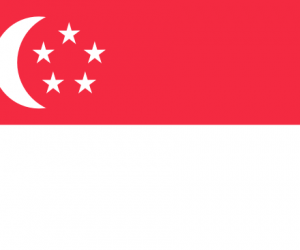
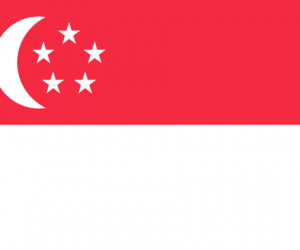
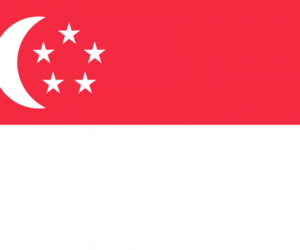
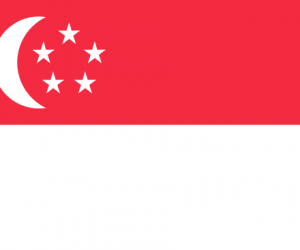
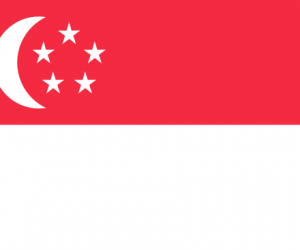
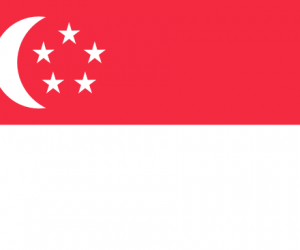
 We will not leak your personal information
We will not leak your personal information